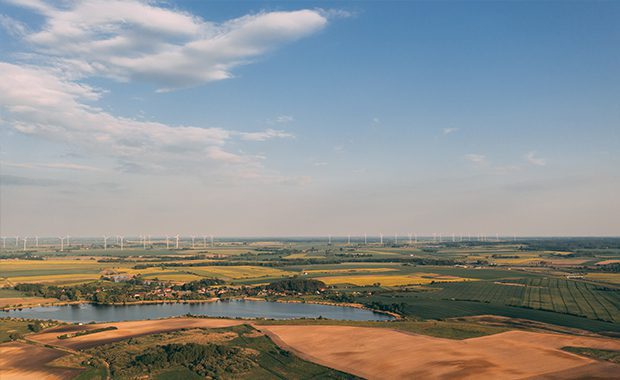For detailed analysis of the government’s spending review, please click the following link: GK Strategy – Spending Review 2025


For detailed analysis of the government’s spending review, please click the following link: GK Strategy – Spending Review 2025

GK interns Olivia Warr and Yusaf Hassan take a deep dive into what the new North Sea oil and gas exploration licenses mean for the UK’s net zero targets.
The Prime Minister’s announcement that the Government would grant 100 new North Sea oil and gas licenses was met with dismay by both climate activists and the Opposition, with Shadow Climate Change Secretary, Ed Miliband, arguing that Sunak’s “weak and confused policy… will do nothing for our energy security and drive a coach and horses through our climate commitments”.
The Prime Minister positioned the move as a refusal to bow down to dictators threatening the UK’s energy security. However, the announcement comes amid a broader shift under Sunak’s watch to less enthusiasm for costly green policies following the Conservative Party’s narrow win in the Uxbridge and South Ruislip by-election – largely attributed to the unpopularity of Labour Mayor Sadiq Khan’s ULEZ expansion. Having already spent months criticising Labour over funding links to activist group Just Stop Oil, No.10 sees the cost of meeting certain green commitments as a clear attack line for the upcoming election season.
The Conservative Party’s messaging will have to be precise, however, to not risk losing control of the narrative. Net zero has huge support among the electorate (a recent YouGov poll had support for the 2050 target at over 70%) and among a large portion of backbench Conservative MPs. If the Prime Minister is seen to be reneging on the Government’s emission-cutting commitments, it could become disastrous for his electoral prospects. What he hopes to exploit, though, is the unease about personal lifestyle or financial implications of certain policy initiatives – as evidenced by the strength of opposition to the ULEZ policy expansion. Sunak hopes to portray himself as the common-sense candidate during a cost-of-living crisis; not taking radical action to hurt people’s bank accounts and showing Keir Starmer to be in the pocket of climate radicals who will hurt the economy for their own agenda.
He will be nervously gauging the reaction of his party. Already, the influential Conservative MP, Chris Skidmore, who recently completed an independent review of the Government’s net zero policies, has slammed the plan, stating it is “on the wrong side of the future economy”. Tory MPs at risk from Liberal Democrat challengers at the next General Election may also be concerned about the opinions of their environmentally conscious constituents. Young people, too, are unlikely to be enamoured by Sunak’s pivot as mainland Europe feels the heat of the climate crisis.
The extent to which Labour can attack the Government’s policy is limited, however, after the Party confirmed they would not revoke any of the licenses issued. This has been seen by some as implicit approval of the plan and perhaps an indication that they quietly also see it as a necessary evil to ensure energy security.
But to what extent will the policy announcement achieve its energy security objectives?
The claim made by the Government is that sourcing oil and gas closer to home would reduce emission production by three to four times whilst lowering import costs. Sunak argues that, given the UK is still forecast to be reliant on fossil fuels for one quarter of its energy needs by 2050, the new licenses would not jeopardise the net zero target. Meanwhile, investing in a Carbon Capture Cluster (CCS) through the Acorn Project in Scotland provides the infrastructure to decarbonise North Sea activity, mitigating those emissions that will result from the new drilling sites, while also generating jobs and investment in Northern Scotland.
However, Sunak’s proposal raises some questions. In terms of tackling the cost-of-living crisis and cementing energy security, there’s no guarantee that the newly extracted oil and gas will be cycled directly into the UK market to provide any benefits. The Climate Change Committee in their 2023 report to Parliament suggested there would be minimal impact on domestic prices from this investment. The North Sea Transition Authority (NSTA) also explained that it would take a minimum of five years before sites could become operational – reducing the short-term benefits of the scheme. Furthermore, while the £1 billion dedicated to the CCS is a mitigatory step in reducing emissions, Sunak has refused to be drawn on whether the development of the infrastructure will be sufficient to match the increased emissions, nor has he committed the extraction licences to be conditional on the emissions’ removal.
It remains to be seen whether the current Government – or indeed any future governments – will be able to make significant progress towards the legally-binding net zero target with the lighter touch, less intrusive approach that Sunak is leaning towards in his bid to keep voters onside, or whether the Prime Minister will be forced to take more dramatic, potentially unpopular, action to ensure the goal is met. The UK’s reputation as a global leader in setting climate change goals is strong, following on from a successful COP summit in Glasgow two years ago, but its ability to deliver on them hangs in the balance.

GK consultant Milo Boyd assesses the new proposals from the Department for Levelling Up, Housing and Communities for nationally significant infrastructure, and if these will truly get the UK planning system firing on all the right cylinders.
The planning system has long been viewed as one of the things that has hamstrung the UK and its growth, particularly in the case of energy and transport infrastructure. Too often, the planning system has been the way that so-called ‘‘NIMBYs’ have been able to stymy any new developments that impact them locally, despite arguments in support of their national importance.
Planning remains a considerable hurdle for the Government if it is serious about achieving its net zero objectives. Onshore wind energy has perhaps been the best example in recent years of how the planning system has hindered the rapid and necessary development of cheap and vitally important infrastructure. In 2015, the UK Government effectively gave local communities the right to veto windfarms by stipulating that they have the final say over whether onshore wind farm applications get the go-ahead in their area. That move, coupled with a removal of subsidies, brought onshore wind installations to an immediate and almost complete halt, the cost of which we are all feeling.
According to IPPR, where England had previously been making modest yet steady progress with onshore wind before the effective ban in 2015, the years since have seen the number of sites receiving planning permission fall off a cliff. Of those which did receive approval, they generate just 0.02% of the target for onshore wind set by the National Grid Future Energy Scenarios, putting England thousands of years behind schedule of its targets for onshore wind.
Now, the Government and the Department for Levelling Up, Housing and Communities (DLUHC) have outlined a number of new proposals which aim to deliver a system with more flexibility for nationally significant infrastructure (NSIPs) development to take place. The proposals fall broadly into 3 areas of reform:
These proposals form part of the Government’s wider ambitions to stimulate growth and create jobs, as well as ensuring that the UK power, waste and water, and transport systems are future proofed. Removing burdens is viewed as a one of the key ways that the Government can promote new opportunities, scale up training and build a more dynamic workforce. In doing, it provides a good deal more certainty and confidence for the promoters and developers of projects – something that is vital for investment. This is something that has similarly been trailed by Labour in recent months, advocating for planning reform to reverse the UK’s sluggish growth and remove barriers to investment in new industries. It is unclear as of yet what Labour’s response to this consultation will be, but it seems likely given recent announcements that Labour will follow a similar tack.
The most eye-catching of the Government’s announcements is a ‘new’ fast-track route for certain projects, which builds on the fast-track system first proposed in 2016 under the Housing and Planning Bill. What is most useful about this measure is that if infrastructure projects are deemed to deliver tangible environmental or community benefits, they can be fast-tracked through the planning process if they meet the proposed quality standards, and – owing to their tangible benefits – quickly sidestep any potential local opposition. The scope of this is also broad, covering energy, water and waste facilities, and transport, thus going beyond the Housing and Planning Bill’s ambition to galvanise housebuilding and meaning that a wide range of projects will be able to benefit from DLUHC’s new measures.
To complement the fast-track route, there is real focus on the pre-application stage of the planning process. and new, targeted input from the Planning Inspectorate for applicant projects. To ensure that those projects which successfully apply to the fast-track route speedily receive consent, the Government is effectively seeking to ensure that any practical hurdles are overcome at the pre-application stage. This would mean that the process for projects can essentially be streamlined to move from acceptance to decision within a shorter maximum examination timescale of 12 months, whilst striking a balance between external consultation and ensuring that involvement is very light touch. Government proposals aim to ensure a limited number of meetings are held during the pre-application process. Following this, any further meetings should only be held at key milestones of the project.
Overall, the fact that the reforms aim to considerably streamline processes for NSIPs is positive. Of course, what the final proposals look like is still up for consultation, but seeking to ensure that projects do not have to jump through a prohibitively high number of hoops will no doubt give investors and developers a heightened degree of confidence that their projects will get off the ground.
Get in touch with the GK team through milo@gkstrategy.com if you would like any further information.

In the third edition of GK Strategy’s ‘What would Labour do?’ series, the GK team looks at Labour’s flagship energy policies, covering key announcements on energy generation, domestic decarbonisation and green investment, as well as the competing dynamics at the centre of the Party. Find GK’s report here: What would Labour do? – Issue No.3

GK consultant Hugo Tuckett takes a look at the potential of Carbon Capture Usage and Storage, assessing the UK’s credentials as a leader for a sector in its infancy.
It is abundantly clear that the Paris Climate Agreement’s aim of limiting global warming to 1.5C above pre-industrial levels is under serious threat. The recently published report by the Intergovernmental Panel on Climate Change (IPCC) makes clear that there is very little chance of keeping the world from warming by more than 1.5C (which would substantially reduce the effects of climate change). Indeed, the world has already warmed by 1.1C and experts now expect to breach 1.5C in the 2030s.
While significant progress has been made towards developing methods of clean energy generation – such as wind, solar and hydro – innovative new technologies continue to come forward which balance the other side of the equation, removing carbon directly from the atmosphere. A vital tool in our arsenal to hit the 2050 net zero target. Technology such as this not only buys us time to develop effective solutions to some of the most intractable challenges we face decarbonising our economy, but also provides us with a route to the eventual return to pre-industrial global temperatures.
In step Carbon Capture Usage and Storage (CCUS). Exciting research has identified a new method of sucking carbon dioxide out of the air and storing it in the sea, which promises to be three times more efficient that current approaches. The stored CO2 can be transformed into bicarbonate of soda and stored safely and cheaply in seawater. The development, although in early stages, has been welcomed by many in the field.
In the public policy world this begs the question; how can Ministers foster an innovative green economy and help bring these solutions to market?
The Government is undoubtedly moving in the right direction. The recent Budget allocated £20 billion of funding for early development of CCUS, far exceeding the reconfirmation of the £1 billion CCUS Infrastructure Fund at the 2021 Spending Review. Given the publication of the Third Climate Change Risk Assessment in January 2023 showed that for eight individual risks economic damages could exceed £1 billion per year each by 2050 with a temperature rise of 2C, those in industry will be relieved that Ministers are finally grasping the problem.
With a general election on the horizon, attention has inevitably turned to Labour and its approach to CCUS. Positive rumblings have certainly been forthcoming, not least the proposed National Wealth Fund which would seek to invest in and grow green industries. Moreover, Keir Starmer’s keynote New Year’s speech specifically cited investment in carbon capture as a central element of his ambition to hit 100 percent clean power generation by 2030.
In the absence of substantive detail, businesses involved in CCUS have the opportunity to shape Labour’s policy development to its advantage at a vital period in the pre-election cycle. Furthermore, given the significant uplift in funding announced at the 2023 Budget, chances to shape Government priorities in the rollout of CCUS will be abundant in the months and years ahead.
Positive advances in CCUS should grab everyone’s attention given the scale of the challenges we face decarbonising our economy and possibly one day returning to pre-industrial global temperatures. It is vital that Ministers work to create an environment in which green technologies such as CCUS can thrive in the UK.
GK consultants are on hand to offer our expertise helping companies navigate the UK’s political and policy landscape. Please get in touch hugo@gkstrategy.com for more information.

GK consultant Milo Boyd takes a look at the significance of both the EU’s Green Industrial Plan and the USA’s Inflation Reduction Act, and assesses what these mean for the UK’s climate competitiveness.
It’s no secret that the Inflation Reduction Act (IRA) has been framed by the incumbent Democrat administration in the United States as one of their big successes (or failures, depending on who you ask). To make it this far, the Act has battled internal Democrat opposition, as well as big-spending averse, influential Republicans who have sought to rein in spending commitments from central government. Despite this, the IRA has put the US on a path to meet its Nationally Determined Contribution (NDC) as set out in the 2016 Paris Agreement and achieve a 50-52% reduction in its carbon emissions by 2030. Of importance to European nations, the Act also contains provisions to benefit US domestic industries. Fearful of the influence that the IRA could wield over the clean tech and net-zero sectors, the European Commission has recently published its own strategy to avoid European industry marching into the welcoming arms of the US – the Green Deal Industrial Plan.
The net-zero transition, the acceleration of which has been stimulated by the ongoing energy crisis due to the conflict in Ukraine, has resulted in considerable shifts in economic, industrial and geopolitical planning throughout both the UK and the EU. With the release of the Green Industrial Plan, the EU has made clear its intentions as to how it aims to take advantage of the accelerated transition to net-zero and strengthen its industrial footing. Fronted by the EU Commission President Ursula von der Leyen, the Plan confirms that the EU will propose a Net Zero Industry Act, which promises to provide a regulatory framework to enhance the competitiveness of the EU’s low-carbon and net-zero industries, including the provision of tax-breaks for companies that support those ambitions.
The plan aims to build on ongoing initiatives, such as REPowerEU – released in May 2022 – and at its centre provides a more predictable and streamlined regulatory environment for clean teach by loosening the limits on subsidies provided by EU member governments to struggling businesses. The hope by the EU is that this will help ensure that Member States are able to provide more ‘state aid’ to prop up businesses that are lagging behind. The Plan has received mixed responses in EU circles, with some figures going as far as describing the plan as ‘Marx on steroids’, amid fears that the stronger EU economies will be able to spend their way to internal economic dominance, and subsequently influence. As described by Von der Leyen, “the next decades will see the greatest industrial transformation of our times”, clearly setting out how the EU views the scale of the opportunity. Evidently, both the Green Deal Industrial Plan and the Inflation Reduction Act will be cornerstones of decision-making on both sides of the Atlantic, with clear transparent efforts to tempt businesses to invest and take root in each respective economy.
So what do both of these plans mean for the United Kingdom? The UK cannot afford to lag behind and lose out to international big hitters, especially now that green industries are understood to be critically important to the UK economy. Lacking the pure economic firepower of both the EU and the US, it is vital that the UK remains agile enough – Brexit benefit anyone? – to spot opportunities as they emerge and quickly take advantage of them, optimising its regulatory and planning landscape to do so. Restrictive planning policies and a 13-year backlog of grid connections for renewable projects have been the Achilles heel of the UK economy throughout the 2010’s, and to date remain overly drawn out and cumbersome, rightly being identified by the Skidmore Review as some of the UK’s biggest weaknesses. Despite generally performing quite well on low-carbon energy, the UK should prioritise speeding up the planning and consent processes to ensure a steady stream of new green projects in the pipeline. Doing so would encourage external investment into the UK economy and secure the continuation of the UK’s position as a global climate leader.
GK Strategy are experts at helping companies navigate the UK’s changing policy landscape, get in touch with milo@gkstrategy.com for more information.